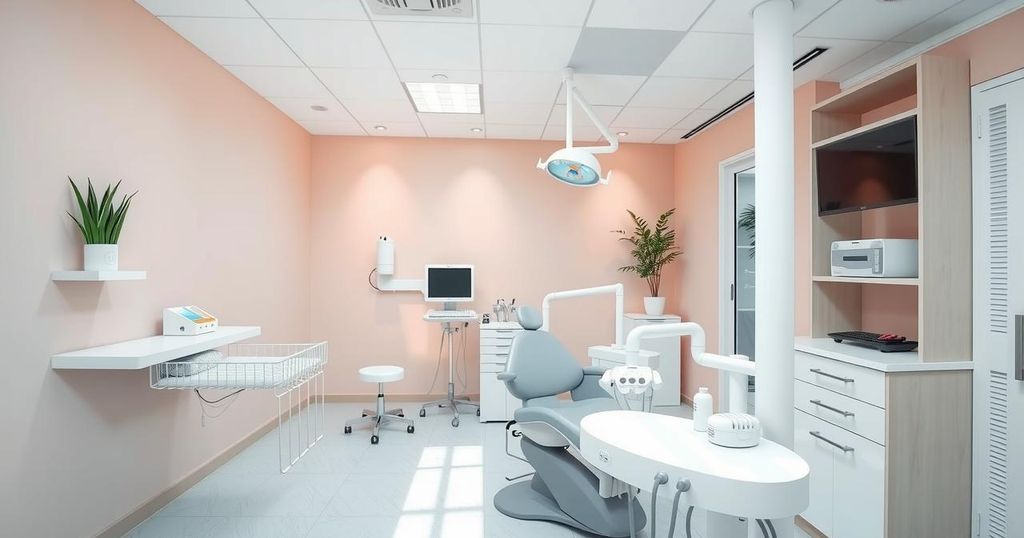Significant Gap in Dental Visits Among Ghanaians: Urgent Need for Action
Less than 10% of Ghanaians visit the dentist regularly, according to the Ghana Health Service. A 2023 WHO survey indicated a high prevalence of oral diseases, with over 70% of adults displaying gum disease. World Oral Health Day emphasizes awareness of oral health, which is crucial for overall well-being. Plans are in place to improve dental care access and public health education.
Less than 10% of Ghanaians regularly visit a dentist, traditionally seeking treatment only during instances of pain or severe complications, as reported by the Ghana Health Service. Professor Samuel Kaba Akoriyea, the Acting Director-General, highlighted findings from a 2023 World Health Organisation (WHO) STEPS survey, which indicate a considerable prevalence of oral diseases among the population.
The WHO survey revealed that over 70% of adults surveyed exhibited indicators of gum disease, such as bleeding and swelling. Additionally, dental caries, or tooth decay, were found to be widespread across various age demographics. At the launch of the 2025 World Oral Health Day, Professor Kaba emphasized the necessity for immediate intervention in light of these findings.
World Oral Health Day, celebrated annually on March 20, aims to elevate public awareness regarding oral health, which is a critical aspect of overall well-being. This year’s event, supported by Colgate, emphasizes the theme: “A Happy Mouth, A Happy Mind.” Professor Kaba pointed out a concerning lack of fluoride toothpaste use, as approximately 50% of respondents reported not utilizing such products, coupled with many engaging in infrequent brushing habits.
The survey also noted a detrimental correlation between poor oral health and systemic health issues, such as hypertension, diabetes, and obesity. The high prevalence of tobacco use among individuals with oral health problems consequently increases the risk for oral cancer and periodontal disease. To address this escalating issue, the Ghana Health Service plans to enhance access to oral healthcare services through increased dental professional deployment in underserved areas.
Moreover, the GHS intends to improve public health education, introduce preventive measures, and foster stakeholder collaboration. Professor Kaba urged the public to maintain diligent oral hygiene practices, including brushing twice daily with fluoride toothpaste, reducing sugar intake, and limiting tobacco and alcohol consumption.
Dr. Richard Selormey, General Secretary of the Ghana Medical Association (GMA), emphasized that oral health extends beyond the teeth, noting its significant role in overall body health. He cautioned that the mouth’s health is interlinked with broader health issues, and he urged government focus on oral healthcare development, considering its potential economic benefits to the country.
Mr. Edmund Nartey from the WHO reiterated the importance of oral health as a typically neglected area and stressed the necessity of raising awareness to enhance public health. Meanwhile, Mr. Edward Sonkor of Colgate remarked that maintaining good oral health is crucial for individual well-being. The event also included demonstrations of proper oral hygiene practices, aiming to inspire public commitment to oral health.
In conclusion, the findings reveal a critical need for enhanced dental care awareness in Ghana, where less than 10% of the population visit dentists regularly. The high prevalence of oral diseases, linked to systemic health issues, emphasizes the urgency for government action and public health education. Oral health must be prioritized to not only elevate individual well-being but also stimulate economic growth through improved healthcare services.
Original Source: www.ghanabusinessnews.com




Post Comment